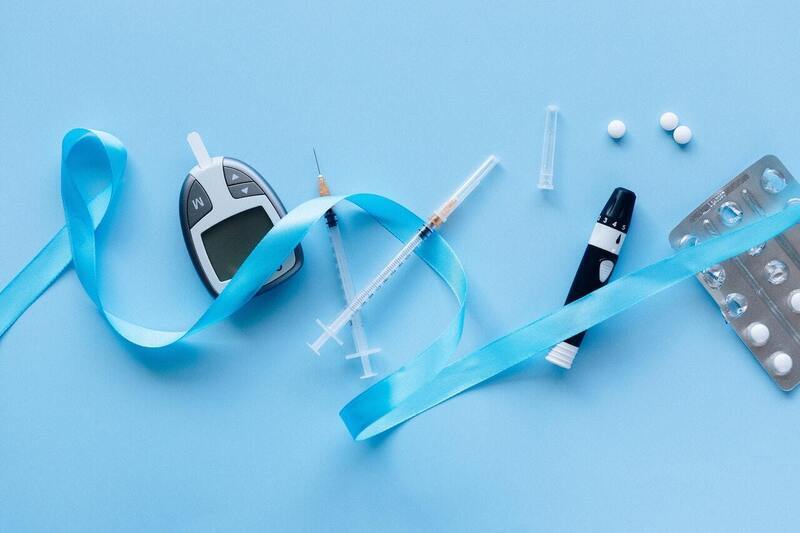
More than one in 10 Americans is living with diabetes; that’s more than 38 million people. Brooklyn Gokey, RN, CDCES with the Hillcrest Center for Diabetes, breaks down the basics of diabetes and provides tips on what you can do to live a healthy life. If you want one-on-one coaching and diabetes management with the center, call 918-579-3385.
What is diabetes?
Diabetes is a disease in which the body does not produce or properly use insulin. Insulin is a hormone that is needed to convert sugar, starches and other foods we eat into energy to be used by the body. There are two main types of diabetes: Type 1 and Type 2, each with different causes and management strategies.
Type 1 Diabetes (T1D)
How does T1D develop?
Genetic and environmental factors: Type 1 diabetes is an autoimmune condition where the body’s immune system attacks insulin-producing beta cells in the pancreas. This destruction is caused by genetic predisposition and environmental triggers such as viruses or dietary factors (along with other unknown triggers). Without insulin, glucose will build up in the blood stream and rise too high. Unfortunately, once the beta cells are attacked, they are permanently damaged and individuals with Type 1 diabetes will have to take lifelong insulin.
Stages of development: The development of Type 1 diabetes can be understood in three stages. Initially, individuals may have autoantibodies but normal blood sugar levels (stage 1). As the disease progresses, blood sugar levels rise (stage 2), eventually leading to symptomatic diabetes (stage 3).
How can you manage T1D?
Monitoring: Regular blood sugar monitoring and insulin therapy are crucial. Diabetes technology such as continuous glucose monitors, known as CGMs, and insulin pumps can help manage blood sugar levels more effectively.
Healthy lifestyle: Maintaining a balanced diet, regular physical activity and managing stress are important. Education and support from diabetes care specialists can also be beneficial.
Ongoing research: The American Diabetes Association (ADA) and the Association of Diabetes Care & Education Specialists (ADCES) continue to support and fund research aimed at finding a cure for Type 1 diabetes. This includes exploring new drug therapies, genetic research and advanced technologies to improve the lives of those with diabetes.
Type 2 Diabetes (T2D)
How does T2D develop?
Development of T2D: Type 2 diabetes typically develops due to insulin resistance, where the body’s cells do not respond effectively to insulin. At first, the body’s cells become less responsive to insulin and the body compensates by producing more insulin. Over time the pancreas cannot produce enough insulin to maintain normal blood sugar levels. This means glucose will build in the blood stream, leading to high blood sugar values. High blood sugars are not healthy for the eyes, feet, kidneys, nerves and heart, especially for prolonged periods of time.
How can you manage T2D?
Lifestyle changes: Diet and exercise are extremely important. A diet rich in whole grains, fruits, vegetables and lean proteins, combined with regular physical activity, can improve insulin sensitivity.
Medications: Depending on the progression, medications like metformin or insulin may be necessary. Regular check-ups with health care providers to adjust treatment plans are essential.
Weight management: Achieving and maintaining a healthy weight can significantly improve blood sugar control and reduce the risk of complications. We've included some specific tips lower in this blog!
Common Symptoms of Diabetes
Frequent urination
Excessive thirst
Extreme hunger
Unexplained weight loss
Nausea and vomiting
Fatigue
Blurry vision
Slow-healing sores
If you notice these symptoms, see a health care provider right away.
Balanced diet
Eating a balanced diet is important for managing diabetes. Here are some guidelines based on recommendations from the Academy of Nutrition and Dietetics:
Foods to include
Non-starchy vegetables: Leafy greens, asparagus, carrots and broccoli are excellent choices. Aim to make half your plate non-starchy vegetables.
Whole fruits: Focus on whole fruits like apples, berries and oranges instead of fruit juices to get more fiber and fewer sugars.
Whole grains: Choose whole grains such as brown rice, quinoa, barley and whole-wheat pasta. These provide dietary fiber, which helps manage blood sugar levels.
Lean proteins: Include lean meats, poultry, fish, eggs, beans, lentils and tofu. These sources of protein can help you feel full and maintain muscle mass.
Healthy fats: Focus on unsaturated fats found in avocados, nuts, seeds and olive oil. Limit saturated fats from sources like butter and fatty cuts of meat.
Dairy: Choose low-fat or fat-free dairy products such as milk, yogurt and cheese. These provide calcium and vitamin D without the extra saturated fat.
Foods to limit
Refined carbohydrates and sugary foods: Limit foods high in added sugars and refined grains, such as white bread, pastries and sugary drinks. These can cause spikes in blood sugar levels.
Saturated and trans fats: Reduce intake of foods high in saturated and trans fats, such as fried foods, baked goods and processed snacks.
Sodium: Cut back on salt by using herbs and spices to flavor your food. High sodium intake can lead to high blood pressure, a risk factor for heart disease.
Tips for managing meals
Portion control: Pay attention to portion sizes, especially for carbohydrate-rich foods. Spread your carbohydrate intake evenly throughout the day to avoid blood sugar spikes.
Regular meals: Avoid skipping meals, as this can lead to overeating later and unstable blood sugar levels.
Hydration: Drink plenty of water and limit sugary beverages.
Don’t forget both types of diabetes benefit from education and support from health care professionals, such as Certified Diabetes Care and Education Specialists (CDCES), who can provide personalized guidance and support. To get connected to the Hillcrest diabetes management team, call 918-579-3385.
